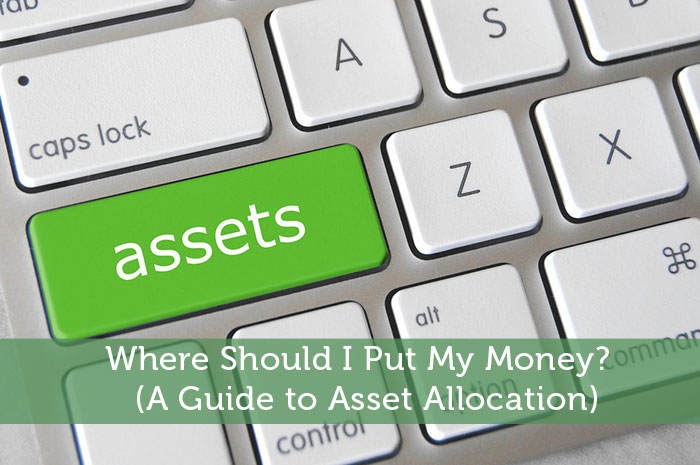I’ve got a problem.
I suspect you have a problem, too.
I can’t figure out what to do with my money. Can you?
I just freed up some liquidity via the sale of my house, and I’m nervous about plowing it into….
- Equities. The equity market is elevated, and the recent upturn could well be a “dead cat bounce”. I’m only a few years from retirement, what if the “big correction” is coming? I watch the CAPE ratio as a price indicator, and its current level of 25 increases the likelihood that future returns will fall below the long-term average.
- Bonds. Yields are unattractive, and there’s a real possibility of interest rate increases over the coming years. We all know that bonds suffer during interest rate increases, so is it worth taking the risk for the small return?
- Fine, I’ll just park everything in a Money Market Fund, or CD. At 0.1%? Really? Even in today’s low inflation world, we’re losing ground every day with that approach on a “real” (inflation-adjusted) basis. Not a viable long-term strategy.
- Commodities: Commodities appear to be near the low point of a long-term cycle. Maybe it makes some sense to buy gold? Purely a speculative timing call, and I’d be giving up dividend growth. Warren Buffet would scold me. Is the world really going to end?
I’ve been an avid personal investor for 30 years, and I’ve never seen an environment that made asset selection more difficult. Regardless, we have to do something. Here’s how I’ve decided to approach the problem, as I face an early retirement at the age of 55 within the next two years:
Pay Off My House. The sale of our primary residence was a downsizing move for retirement. Since we’ve got excess liquidity, we’re going to go ahead and pay off our retirement home’s mortgage with the equity we’ve freed up from our home sale. It’s only a 3.5% yield (mortgage rate), but it’s a lot better than a 0.1% money market fund. Safe, secure, and reduces our expenses in retirement.
Maintain Diversification: I know that wide diversification is the most logical approach for someone within 2 years of retirement. While I may not like the current valuations or returns, it’s best to not try to time the market with big asset allocation shifts. Long term, I need equities to insure my portfolio keeps up with inflation and can fund me if I live to 95. I also need the stability of bonds and cash to smooth out the ride. “Alternative” investments are a reasonable diversification play, given the uncertainty around everything else, so I’ve got them in the mix.
Asset Allocation Targets: Rather than speculate, I’ve been spending my time thinking about how much risk I want to face in The Red Zone (+/- 5 years of retirement). I’ve built a spreadsheet with the targeted asset allocations that I’m comfortable with, based on significant research on the topic. I’m not going with the simple rules of thumb (“110 – Your Age = Equity %”), as I do think things are a bit overheated. Also, I’m intrigued with the work that Michael Kitces and Wade Pfau have done on optimizing withdrawal rates through asset allocation (which argues you’re best to reduce equity exposure at retirement, then increase later in life).
Dollar-Cost Average: I’ve also compared the “ideal” to my current asset allocation, and have set up automatic transfers with various accounts to gradually adjust my actual asset allocation to my ideal state. I don’t need to be in a rush to do a short-term rebalancing, so I’ve set it up using a plan which will readjust things to my “retirement ready” targeted allocation over the next 12-18 months.
Reserve Fund: Given the uncertainty, I’m targeted a 2-3 year cash reserve fund by the time I retire. In order to avoid sequence risk (having to sell equities in the midst of a bear market early in retirement, which has been proven to be one of the major risks retirees have), I’ll carry a reserve on the high end of the recommended range.
Hopefully, by doing all of these steps, I’ll sleep well at night in all but the most extreme market situation.
How about you? What are you doing in today’s unique market environment to manage your asset allocation?
Fritz Gilbert
Founder @ The Retirement Manifesto, a blog focused on Helping People Achieve A Great Retirement.






I’d like to build a big pile of cash, waiting for the oil stocks to crash for real this time to scoop them up. 🙂
Buy fixer upper and turn them into more profitable rental or flipping house.
Im curious why you didn’t put in investment plan where you don’t pay any profit to tax?
Vivianne, Thanks for your comment. I do have the majority of my investments in tax advantaged retirement accounts. Obviously, my primary residence was an exception, but it’s actually very important in early retirement to have an “after tax” pile of cash to bridge you until you can access the tax advantaged accounts!